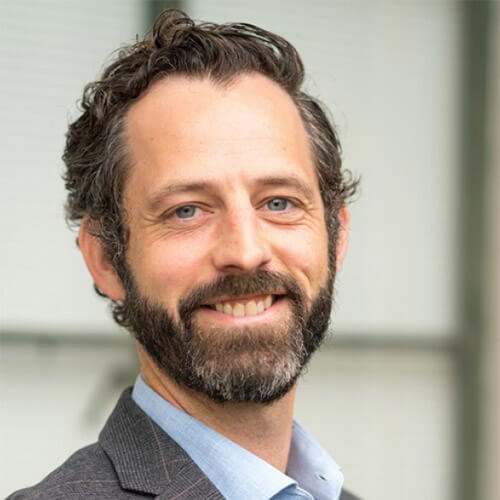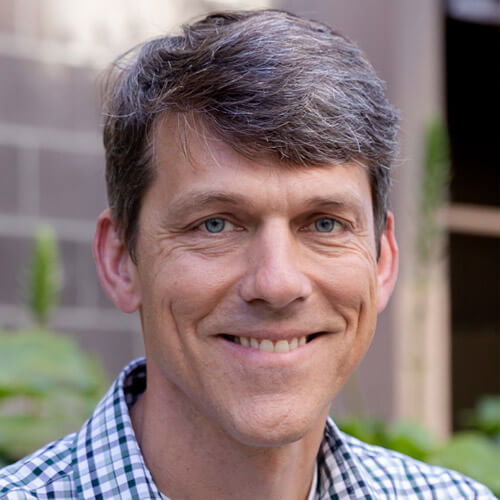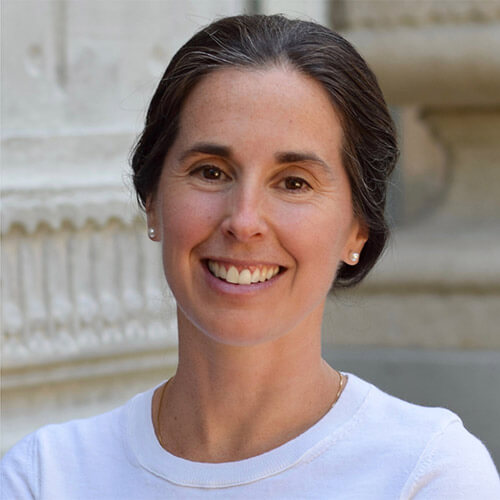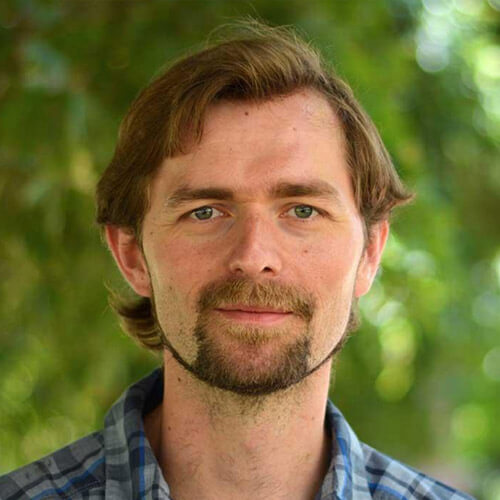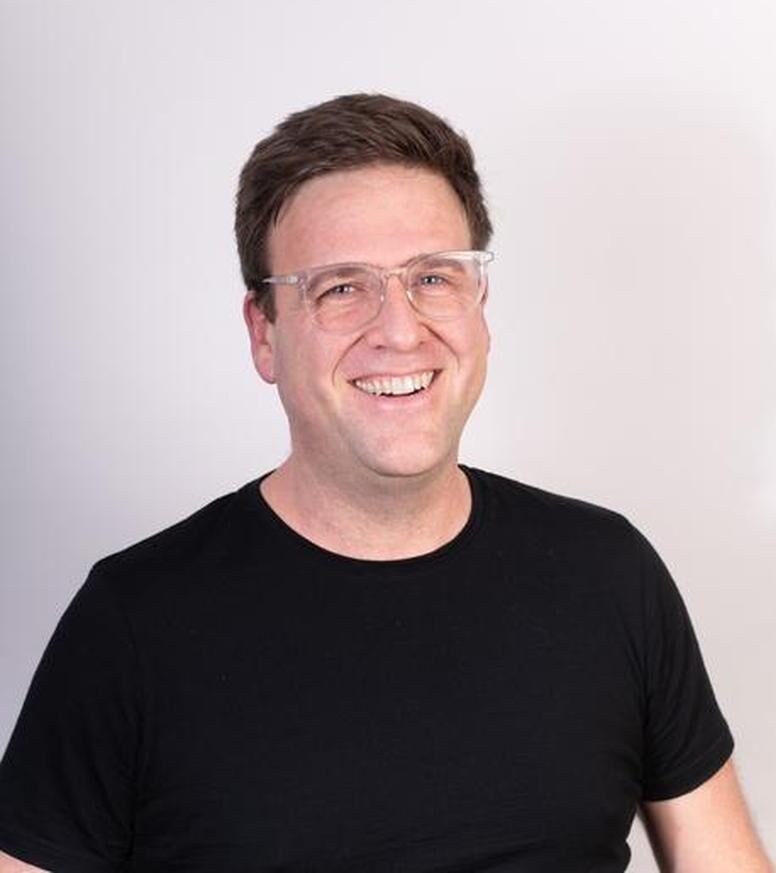The MCS Experience
Centered on positive change and practical action.
Find out more


Organizations, cities, and states around the world are charting paths to quantify and curtail their carbon emissions and uncovering business avenues within climate solutions. In addition to focusing on reducing their environmental impact, they are proactively crafting robust policies and strategic plans that hinge on the intertwining of environmental stewardship and economic opportunity. They need graduates of the Master of Climate Solutions (MCS) program at the University of California, Berkeley’s Rausser College of Natural Resources.
Upon graduation, you will be poised to forge impactful climate solutions in varied contexts. Your potential paths include assisting a company in devising internal incentives to curtail its carbon emissions, crafting a resilient climate adaptation plan for a local government, assisting a transportation company pivot towards cleaner operations, rallying for climate-friendly legislation, or sculpting a business plan that propels a green entrepreneur’s product to market.
Simply put, you will be a sought-after climate solutions specialist—and a change architect who will directly benefit the organization and the global community.
MCS: Turning Potential into Progress
The Master of Climate Solutions (MCS) is designed, not to teach you to become a scientist who develops a new energy source or advances material science, but to enable you to evaluate the strengths and weaknesses, the potential and the risks, of such a new tool. The program is built to give you the skills and experiences you need to conduct this evaluation in a streamlined manner.
Curriculum
Core Courses
16 units
Thematic courses cover essential topics within the natural and social sciences related to climate.
- Climate Science & Impacts
- Economic Insights for Climate Solutions
- Climate and Energy Policy & Politics
- Technological & Nature-Based Solutions
- Business Solutions & Industry pathways
Two analytical skills courses cover particular methods and tools essential for careers in climate.
- Data Sciences
- Carbon Accounting & Lifecycle Analysis
One course equips students with the skills and knowledge to enable innovative climate solutions at both organizational and societal levels (e.g., theory of change, strategic planning, organizational theory, multi-stakeholder processes, consensus building, problem solving).
- Organizational, Political, and Societal Change for Climate Solutions
Electives
Minimum 6 units
Students may choose from MCS electives, as well as from a curated list of courses offered by UC Berkeley’s departments of Agricultural & Resource Economics; Energy and Resources; Environmental Science, Policy, and Management; and the Haas Business School.
Colloquium
2 units
One yearlong colloquium features a series of guest speakers, excursions, applied exercises, and professional skills workshops.
Capstone
5 units
A two-semester capstone experience affords you an opportunity to apply your knowledge and skills to a real-world project. To choose your project and find a partner organization, you’ll work closely with our Climate Solutions Accelerator—a platform that connects MCS students, faculty, and partner organizations across business, government, and non-profit sectors.
Examples of capstone projects include:
- Evaluate carbon offset claims by service providers and recommend the best option to a partner company
- Work with a coalition of environmental groups and clean energy companies to develop a policy proposal for scaling energy storage in California’s power grid
- Work with a company to develop a cost-effective process to measure and reduce Scope 3 emissions
- Develop policy and political strategies for local and state governments and other stakeholders to incentivize soil management practices that promote carbon sequestration
MCS Course Sequence
Courses and faculty information:
Summer: Mid August
CSOL 200: Organizational, Political, and Societal Change for Climate
Fall
CSOL 205: Capstone (2 units), Professor Jason Kibbey: M/W 1-2 PM
CSOL 206: Colloquium (1 unit per semester), Professor Jason Kibbey: T/Th 1-2 PM
Fall A (7 weeks late Aug to mid Oct)
CSOL 201: Climate Science & Impacts (2 units), Professor Whendee Silver: T/Th 9-11 AM
CSOL 202: Climate Solution Pathways (2 units), Professor Dara O’Rourke: M/W 9-11 AM
Fall B (7 weeks mid-Oct to mid-Dec)
CSOL 203: Technological & Nature-Based Solutions (2 units), Professor Duncan Callaway: M/W 9-11 AM
CSOL 204: Carbon Accounting & Lifecycle Analysis (2 units), Professor Matthew Potts: T/Th 9-11 AM
Spring
CSOL 210: Capstone (3 units), Professor Jason Kibbey: M/W 1-2 PM
CSOL 206: Colloquium (1 unit per semester), Professor Jason Kibbey: T/Th 1-2 PM
Spring A (7 weeks, late Jan to early March)
CSOL 207: Economic Insights for Climate Solutions (2 units), Professor Max Auffhammer: M/W 9-11 AM
CSOL 208: Data Sciences for Climate Solutions (2 units), Professor Carl Boettiger: M/W 12 – 1:50 PM
Spring B (7 weeks, early March to early May)
CSOL 209: Climate and Energy Policy & Politics (2 units), Professor Michael Mascarenhas: M/W 9-11 AM
Scholarships
All MCS students are considered for partial to full scholarships. Additionally, we partner with the UC Berkeley Center for African Studies in their participation of the Mastercard Foundation Scholars Program, for those who are eligible.
Find Out MoreScholarships
All MCS students are considered for partial to full scholarships. Additionally, we partner with the UC Berkeley Center for African Studies in their participation of the Mastercard Foundation Scholars Program, for those who are eligible.
Find Out MoreFaculty Highlights
Upcoming Events
Faculty & Leadership

Jim Sallee MCS Faculty Director
James Sallee researches and teaches environmental policy and market responses in the transportation and electricity sectors. He has published dozens of articles on environmental economics, advised federal and California environmental agencies and the National Academies of Sciences, and works as an Amazon Scholar to accelerate decarbonization in the private sector. He is a Professor in the Department of Agricultural and Resource Economics, a Research Associate of the Energy Institute at Haas, and a Research Fellow of the National Bureau of Economic Research.

Whendee Silver Professor and Rudy Grah Chair
Whendee works on drivers of greenhouse gas dynamics, climate change mitigation potential, and effects of extreme climate events in ecosystems. Current projects include converting high-emission organic waste streams to low-emitting agricultural amendments for carbon sequestration, enhanced rock weathering to sequester atmospheric carbon dioxide, development of novel low-cost environmental sensing, and the biogeochemistry of hot spots and moments of emissions. We use field, laboratory, and modeling approaches and have pioneered field applications of continuous environmental sensing of greenhouse gases and associated drivers.

Jason Kibbey Assistant Adjunct Professor, Masters of Climate Solutions Program
Jason Kibbey is a sustainability-focused entrepreneur and executive with a history of building organizations that drive climate and environmental innovation. He was the first Executive Director and CEO of the Sustainable Apparel Coalition, the industry’s largest alliance for sustainable production, and the Founder and CEO of Worldly, the leading platform for environmental and social impact data in apparel and footwear. He also co-founded PACT, a sustainable apparel brand, and launched the Apparel Impact Institute, a collaborative fund now directing over $100 million toward decarbonizing supply chains. His work centers on applying systems thinking, entrepreneurship, and organizational leadership to solve climate challenges at scale.

Dara O’Rourke MCS Faculty Director
Dara O’Rourke studies the environmental, labor, and health impacts of global production systems, and strategies for better governance of climate transitions. Dr. O’Rourke is the Faculty Co-Director of Berkeley’s new Master of Climate Solutions. Dr. O’Rourke founded the Sustainability Science and Innovation team within Amazon.com, which led to the launch of The Climate Pledge. Dr. O’Rourke previously applied his research to a social venture startup – GoodGuide.com – which built a suite of tools to provide information on the environmental, social, and health performance of products and companies to consumers.

Meredith Fowlie Professor
Meredith Fowlie studies the economics of climate change adaptation and the clean energy transition. Her research interests include wildfire risk management, renewable energy infrastructure deployment, and electricity rate design. Dr. Fowlie is a faculty director at the Energy Institute at Haas and she co-directs the Energy and Environmental Economics group at the National Bureau of Economic Research. She is actively engaged in climate policy. She is currently serving as chair of California’s Independent Emissions Market Advisory Committee (IEMAC).

Carl Botteger Associate Professor
Carl Botteger is an associate professor in Environmental Science, Policy, and Management at UC Berkeley. A theoretical ecologist and data scientist, he works on ecological forecasting and decision making under uncertainty. He has degrees in Physics and Population Biology from Princeton and UC Davis. He is a co-founder of the Schmidt Center for Data Science & Environment at UC Berkeley (DSE), and of the open source community projects rOpenSci and Rocker.

Duncan Callaway Chair, Energy and Resources Group
Duncan Callaway works on pathways to decarbonize the electricity grid. Nearly all of his work applies an engineering lens to these problems, and he weaves economics, policy, and energy analysis methods into his research. He regularly advises California energy agencies and testifies to lawmakers on topics related to his research. He is a Professor and Chair of Energy and Resources Group, a Research Associate of the Energy Institute at Haas, and Affiliated Faculty in the Department of Electrical Engineering and Computer Science.

Matthew Potts Professor and S.J. Chair in Forest Economics
Matthew Potts, S.J. Hall Chair in Forest Economics, has an interdisciplinary background with training in mathematics, ecology, and economics, and more than two decades of experience in resources management issues. His lab focuses on nature and community based climate solutions as well as multi-use management of working landscapes. He is Associate Director for Sustainable Development at the Blum Center for Developing Economics. Dr. Potts also currently serves as the Chief Science Officer at Carbon Direct where he helps the world’s biggest companies identify, implement, and scale sustainable business practices.

Mio Katayama Director of Program Operations
As Director of Program Operations, I lead the Master of Climate Solutions, a professional master’s program focused on climate and sustainability at UC Berkeley. This role builds on my experience as Program Director for the Beahrs Environmental Leadership Program, where I’ve been advancing environmental and climate solutions for over 10 years, collaborating with Berkeley faculty and external partners.
